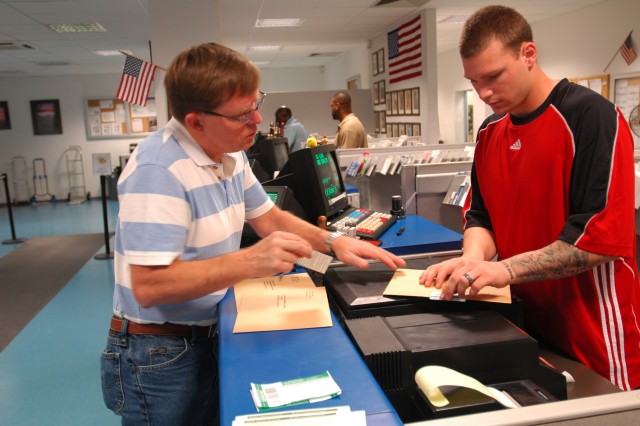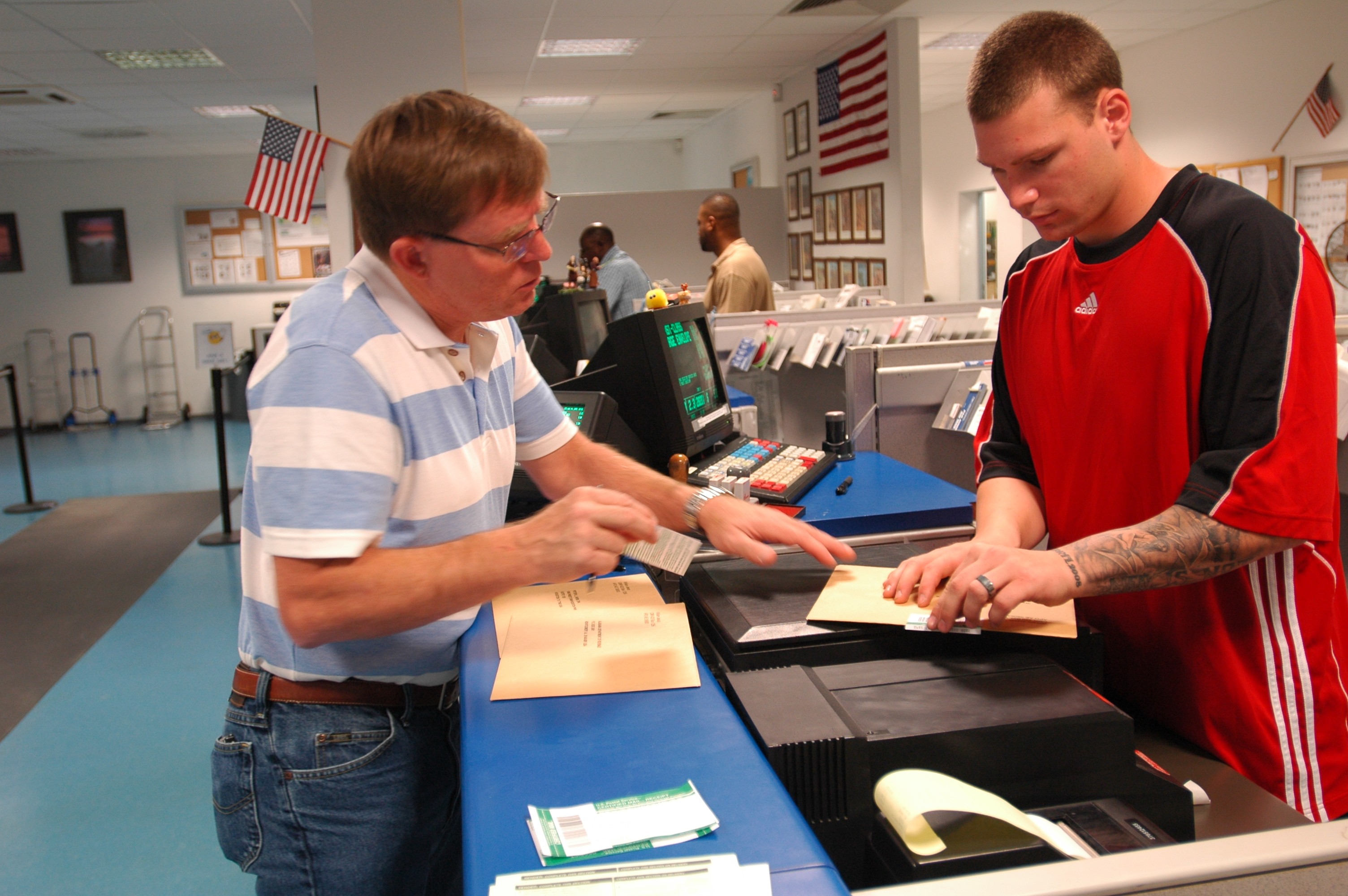
HEIDELBERG, Germany -- Three weeks before returning to Germany after a 15-month tour in Anbar province with the 1st Armored Division, then-Sgt. Richard Ranno was closing the door of a Conex being used as an arms room when a mortar round slammed through the roof, throwing the doors off their hinges and turning the container into a watermelon shape.
Ranno was also thrown to the pavement. To this day, Ranno is not sure if it was this incident or the various improvised explosive devises he encountered as an infantry Soldier that caused his current list of injuries.
Ranno suffers from postconcussive syndrome and post traumatic stress disorder, which manifests as frequent headaches, dizziness, nausea, hypersensitivity, nightmares and abnormal anxiety, among other symptoms.
But, despite his injuries, Ranno has found work in Heidelberg thanks to the Army Wounded Warrior program, and is thriving as a federal employee, according to his boss, Kevin Williams, Heidelberg postmaster.
"He's an outstanding employee," Williams said. "Right away I recognized that he was highly motivated and wanted to learn, so I refused to let him go," referring to the practice of sending new postal employees to the community mail rooms.
Instead Ranno, who is the first person to find work in Europe through the AW2 program, works as a postal finance clerk at the main post office on the Community Support Center in Heidelberg. Ranno medically retired from the Army Aug. 21, but has already been working in the Heidelberg community for a month while on terminal leave.
The path from post-deployment in Germany to working in the Heidelberg post office was a two-year process across two continents and an ocean.
After returning to Baumholder with the 1st Battalion, 6th Infantry Regiment, Ranno, a six-year Army veteran, discussed his symptoms with doctors during post-deployment screenings, but with orders in hand for Fort Campbell, Ky., his treatment was delayed.
After moving to Fort Campbell in June 2007, Ranno began working with Blanchfield Army Community Hospital doctors, who immediately recognized his need for treatment.
Care for Ranno's conditions began immediately at BACH, but the local Warrior Transition Unit was a relatively new entity, and it was hard to get into the unit, but after eight months he was transferred from 1st Battalion, 506th Infantry Regiment to the WTU.
Once he was in the WTU, Ranno said he was able to attend college at Embry-Riddle Aeronautical University while receiving treatment and awaiting medical evaluation boards.
Today, Ranno is four courses short of an associate's degree in technology management with a minor in occupational safety and health. Ranno said his time at the WTU was a good experience.
"For the most part it was really good," he said. "They just take care of the Soldiers."
Fortunately for Ranno, the WTU cadre weren't the only ones taking care of him. His wife, Alexandra, who is from Bad Kreuznach, has helped him weather the storms of recovery.
"She's been great," he said. "She's dealt with everything with me and did her research to try to help me cope with all these problems. I couldn't ask for anything better.
"As hard as it was on her, I'm sure, she didn't complain and just helped me with whatever I needed."
The Rannos have a 15-month-old son, who Ranno says has too much energy, and is growing up too fast.
"I just try to keep up with him," Ranno said, "and play with him."
At work, however, Ranno is doing more than keeping up.
"He came in with a go-getter attitude, wanting to learn," Williams said. "If he was on the list for a permanent position, I would hire him in a heartbeat."
Since coming on board, Ranno has attended two and a half weeks of training and has been up front working with the customers. He's still learning about the job but has already volunteered to drive the truck to and from Mannheim, which includes loading and unloading the truck.
Ranno said he deals with the migraines, dizziness and other symptoms of his injuries at work by taking a break when he needs to. He said he experiences these conditions daily and is dizzy probably 80 percent of the day.
"I've had it for two and a half years now," Ranno said. "I just have to deal with it ... I mean I have to work ... When you have something all the time, you just learn to adapt to it. I have my little tricks to try to make things easier."
One thing Ranno said he hasn't dealt with is his PTSD symptoms.
"I don't want to deal with it, so even when I go to try to see doctors and stuff, they try to get me to talk about it and I push it away and I'll stop going," Ranno said. "That doesn't help. Obviously, I'm not going to get better ... I've started seeing someone here ... This guy is ready to help, but when am I going to let him' We'll see."
So far Ranno said he hasn't shared much of his story with his coworkers.
Williams said he hasn't noticed anything out of the ordinary about Ranno and with the new Postal Service Center concept coming to Europe.
"I need the best people ... I need people who can work without supervision, and he qualifies for that," said Williams.
(Editor's Note: Jason Austin writes for the USAG Baden-WAfA1/4rttemberg newspaper, the Herald Post.)

Social Sharing